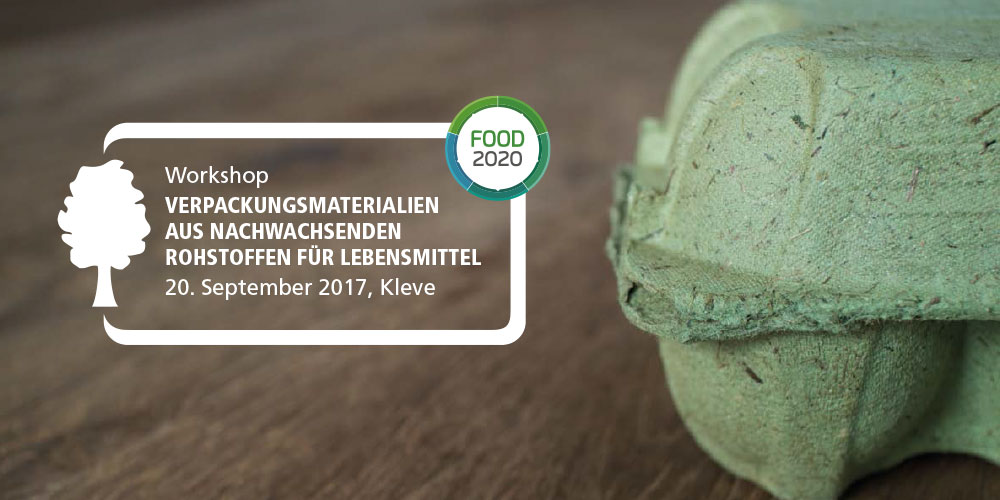Workshop on sustainable food packaging materials

Packaging materials made from renewable raw materials are an interesting and sustainable alternative to PET bottles, aluminium beverage cans or polystyrene trays. The question of what contribution the food and packaging industry can make to avoiding packaging waste is addressed in the workshop “Packaging materials from renewable raw materials for food”. Experts from science and industry will discuss the possibilities and limits of the use of innovative packaging materials that guarantee the shelf life of food while reducing the environmental impact.
Since you can no longer buy a plastic bag for free, its consumption in Germany has fallen rapidly. The ban of free carrier bags is however only a drop on the hot stone of the world-wide garbage problem and the garbage of the world oceans by packing materials with bad ecological balance. In July of this year, António Guterres, Secretary-General of the United Nations, opened the first UN Conference on the Protection of the Oceans, stating that, according to a study, in just over 30 years’ time there will be more garbage than fish in the oceans of the world.
How to avoid packaging waste Packaging with a poor ecological balance can be replaced by the use of renewable raw materials such as grass fibres or potato starch will be discussed by scientists and entrepreneurs on 20 September 2017 at the Rhine-Waal University of Applied Sciences in Kleve. In the free workshop, which takes place as part of the German-Dutch cooperation project FOOD2020, insights will be given into the sustainable future of food packaging and potential applications will be highlighted.
Further information can be found in the event calendar. The number of participants is limited, registration is possible via GIQS.
FOOD2020 is implemented within the INTERREG programme Deutschland-Nederland and is co-financed by the European Union, the Ministerium für Wirtschaft, Innovation, Digitalisierung und Energie of North Rhine-Westphalia, the Ministerium für Bundes- und Europaangelegenheiten und Regionale Entwicklung of Lower Saxony, the Dutch Ministerie van Economische Zaken en Klimaat and the provinces of Drenthe, Fryslân, Gelderland, Groningen, Limburg, Noord-Brabant and Overijssel. It is supported by the programme management of the Ems Dollart Region. Lead partner is the Deutsches Institut für Lebensmitteltechnik e.V. in Quakenbrück.


